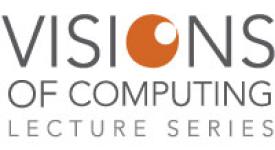Yin Zhang Wins Best Paper Award
11/28/2011 - Yin Zhang, along with his former student Ajay Mahimkar (now at AT&T Research) and several other co-authors, won the Best Paper Award at ACM CoNEXT 2011.
11/28/2011 - Yin Zhang, along with his former student Ajay Mahimkar (now at AT&T Research) and several other co-authors, won the Best Paper Award at ACM CoNEXT 2011.
11/14/2011 - Brent Waters has won a Packard Fellowship. Only sixteen Packard Fellowships were awarded this year across all of science and engineering.
11/14/2011 - Setting yet another milestone in multicore innovation, Texas Instruments Incorporated (TI) and the University of Texas at Austin (UT Austin) have successfully ported UT Austin's libflame library, a dense linear algebra library for scientific computing, to TI's TMS320C6678 multicore digital signal processor (DSP).
11/13/2011 - As an educator, associate computer science professor Peter Stone has a unique perspective on who, or what, can learn. Stone has spent his time at UT working with students to develop intelligent robots capable of learning and adapting to their environments.
11/11/2011 - UTCS Assistant Professor Kristen Grauman and Devi Parikh of the Toyota Technological Institute Chicago (TTIC), and a former visiting postdoc, received the Marr Prize at ICCV for their paper "Relative Attributes" that was presented at the13th International Conference on Computer Vision (ICCV) in 2011.

10/27/2011 - On Wednesday, October 26, 2011, the University of Texas at Austin Department of Computer Science held the annual Visions of Computing Lecture, a lecture series honoring UTCS faculty accomplishments. Through this lecture series, faculty presented insights into computer science research and education to the public and the computing community.

10/13/2011 - On Wednesday, October 26, 2011, the University of Texas at Austin Department of Computer Science will hold the annual Visions of Computing Lecture, a lecture series honoring UTCS faculty accomplishments. Through this lecture series, faculty present insights into computer science research and education to the public and the computing community. This year's lecture will take place from 4:00 - 5:30 p.m. in the Avaya Auditorium, ACES 2.302.
09/12/2011 - UTCS is pleased to announce Best Paper Awards won by our faculty, staff and students.
09/09/2011 - Faculty at the The University of Texas at Austin Department of Computer Science (UTCS) are at the forefront of the digital revolution. UTCS recently celebrated a long list of faculty awards.
08/10/2011 - For his work on the foundations of a new way of encrypting data, Brent Waters from the University of Texas in Austin has been elected as one of this year's...